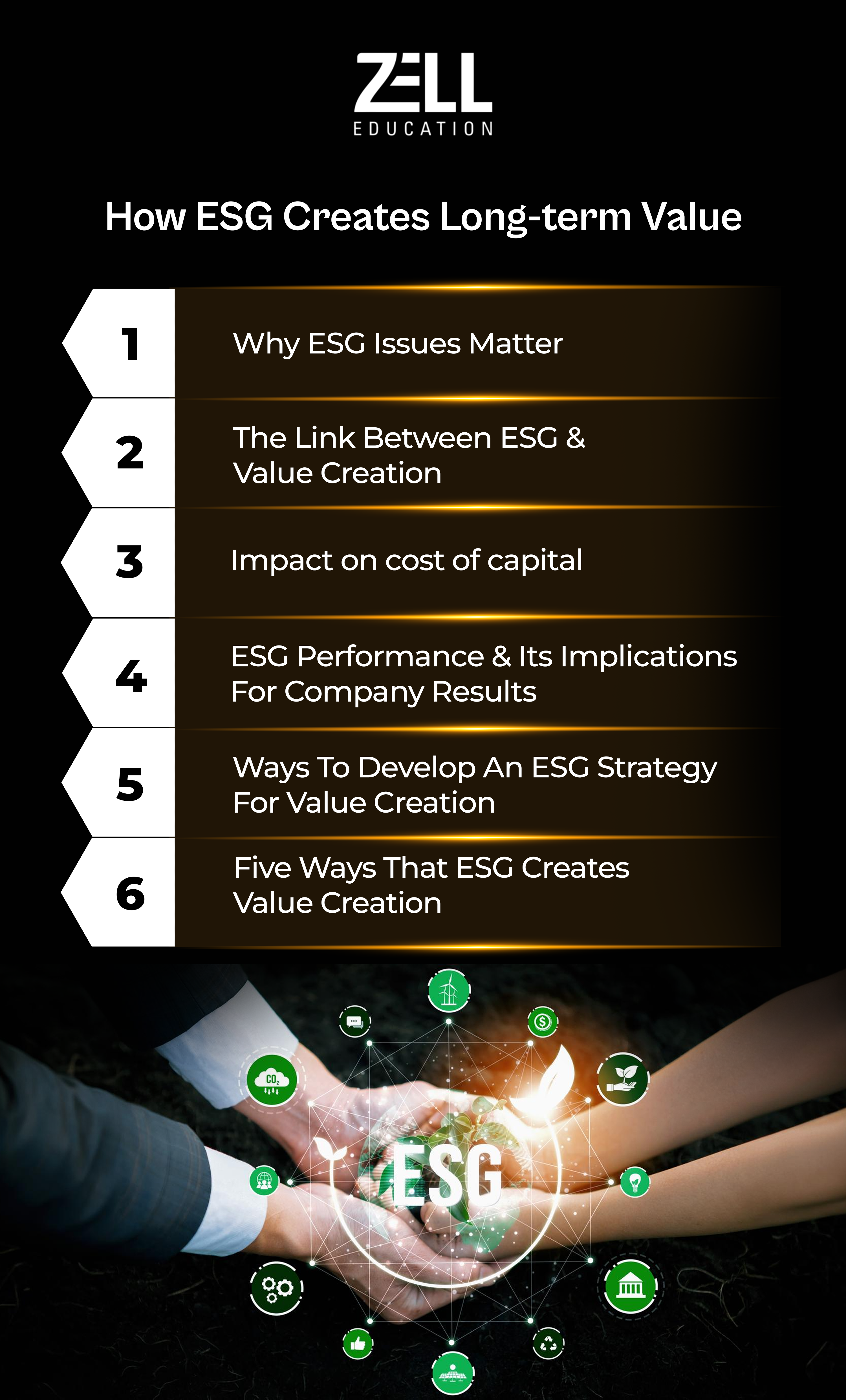A brand is like a legacy — it lives beyond its maker, it has a life of its own. Thus, to make any business sustainable and brand-worthy, one must adhere to ESG practices.
For sure these ESG practices were once sidelined as CSR (Corporate Social Responsibility) initiatives, however, the current world leaves no choice but to critically adopt these drivers of long-term value creation.
Responsible ESG investments create high ROIs because the ESG sectors are creating a better tomorrow. These sectors include the environmental, social and governance ones. There is a shift towards ESG preference. It shows a growing awareness among investors, stakeholders, and consumers that sustainable business practices contribute not only to societal welfare but also to financial performance. How?
If you can generate value in people’s lives, you will automatically be compensated in terms of monetary value. That’s how the people-led economy works.
Why ESG Issues Matter
Identifying the ESG issues is already halfway through solving them. The business heads are often in supposed denial that ESG issues like climate change, pollution, resource depletion, harming biodiversity, human rights issues, labour practices, RTI, transparency, ethical conduct and fair compensation can be found in leading companies.
These issues matter in assessing a company’s ESG score, risk profiling and future growth potential. Investment decisions are often made based on these considerations.
The Link Between ESG And Value Creation:
Noticeable growth in revenue
When a company prioritizes ESG initiatives, it makes them infiltrate newer markets easily, attract socially conscious consumers, and have the air of innovation around them all the time. These tend to catalyse revenue growth exponentially.
Optimizing investments and assets
Money flows from abundance to abundance. By adopting ESG means, companies can make responsible investment decisions and efficient asset management. It minimizes risks associated with environmental degradation and resource depletion.
Reduced regulatory and legal interventions
‘Value’ is more than just the cash flow. By periodically tending the ESG issues, a business can mitigate the risk of non-compliance with regulations, avoiding costly fines and legal liabilities. Low legal tussles keep the goodwill shining.
Reducing Costs
ESG practices are very practical and when implemented well, they can lead to significant cost savings through resource efficiency, waste reduction, and operational optimization.
Employee productivity uplift
Value is where people are. Businesses must focus on social factors like diversity, equity, and inclusion. It shows that the company indeed ‘values’ them. Such an act can enhance employee satisfaction, engagement, and productivity, driving overall performance.
Impact on cost of capital
Why borrow a bottle when you can have your pool? A company with a high ESG ranking attracts a lot of investors; gets a loan at lower rates; and receives a lot of exclusive opportunities.
ESG Performance and Its Implications For Company Results
The ESG performance of a company is directly proportional to a lot of factors such as —
- Financial Performance
- Risk Management
- Access to Capital
- Brand Image and Goodwill
- Customer Loyalty and Market Share
- Regulatory Compliances
- Employee Engagement and Productivity
- Innovation and Competitiveness
When ESG considerations are prioritized, businesses can be sustainable and benefit all stakeholders in the long run. They are interconnected and ethically aligned.
Ways To Develop An ESG Strategy For Value Creation
Unlocking Growth Potential
A comprehensive ESG strategy can help companies to do a SWOT (Strength Weakness Opportunity Threat) analysis afresh. This analysis can help to identify new growth opportunities aligned with business sustainability objectives.
Driving Efficiency and Reducing Costs Through ESG Strategies
An ESG strategy brings sustainability and structure to a business. This helps reduce costs by streamlining operational processes, minimizing waste, and enhancing resource efficiency.
Mitigating Regulatory and Legal Risks Through ESG
ESG strategies help businesses keep up with the standards set up by global regulatory bodies. Such implementations can minimize the risk of legal disputes, regulatory fines, and reputational damage.
Attracts and Retains Quality Employees
It is essential to have an ESG strategy to enhance employer branding, attracting top talent motivated by ethical values and sustainability commitments.
Enhancing Long-Term Resilience and Reputation
Building trust with stakeholders is essential. Have an ESG strategy to enhance brand reputation, and ensure long-term ROI in a rapidly changing business landscape.
Five Ways That ESG Creates Value Creation
The crucial value-generation ways are already mentioned above, however, here are 5 more pivotal ways.
- Innovation and Competitiveness by differentiating themselves in the market to attract a niche audience.
- Employee Engagement and Productivity.
- Long-term resilience against external shocks and market fluctuations.
- Supply Chain Optimization to minimize disruptions, improve product quality, and drive down costs.
- Regulatory Compliance and Market Access to regulated industries. Businesses gain enough trust to get government contracts.
FAQ’s on How ESG Creates Long-Term Value:
What are the long-term goals of ESG?
ESG aims to promote sustainable business practices that balance environmental stewardship, social responsibility, and effective governance to ensure long-term prosperity for companies and society.
What is the value of ESG?
The value of ESG lies in its ability to drive sustainable growth, mitigate risks, enhance reputation, and attract capital, ultimately fostering resilience and long-term value creation.
What will be the impact of ESG by 2025?
By 2025, ESG considerations are expected to become even more deeply embedded in corporate strategies, influencing investment decisions, consumer behaviour, and regulatory frameworks globally.
How is ESG profitable?
ESG is profitable because it aligns businesses with evolving societal expectations, mitigates risks, reduces costs, enhances brand value, and fosters innovation, ultimately driving long-term financial performance.

